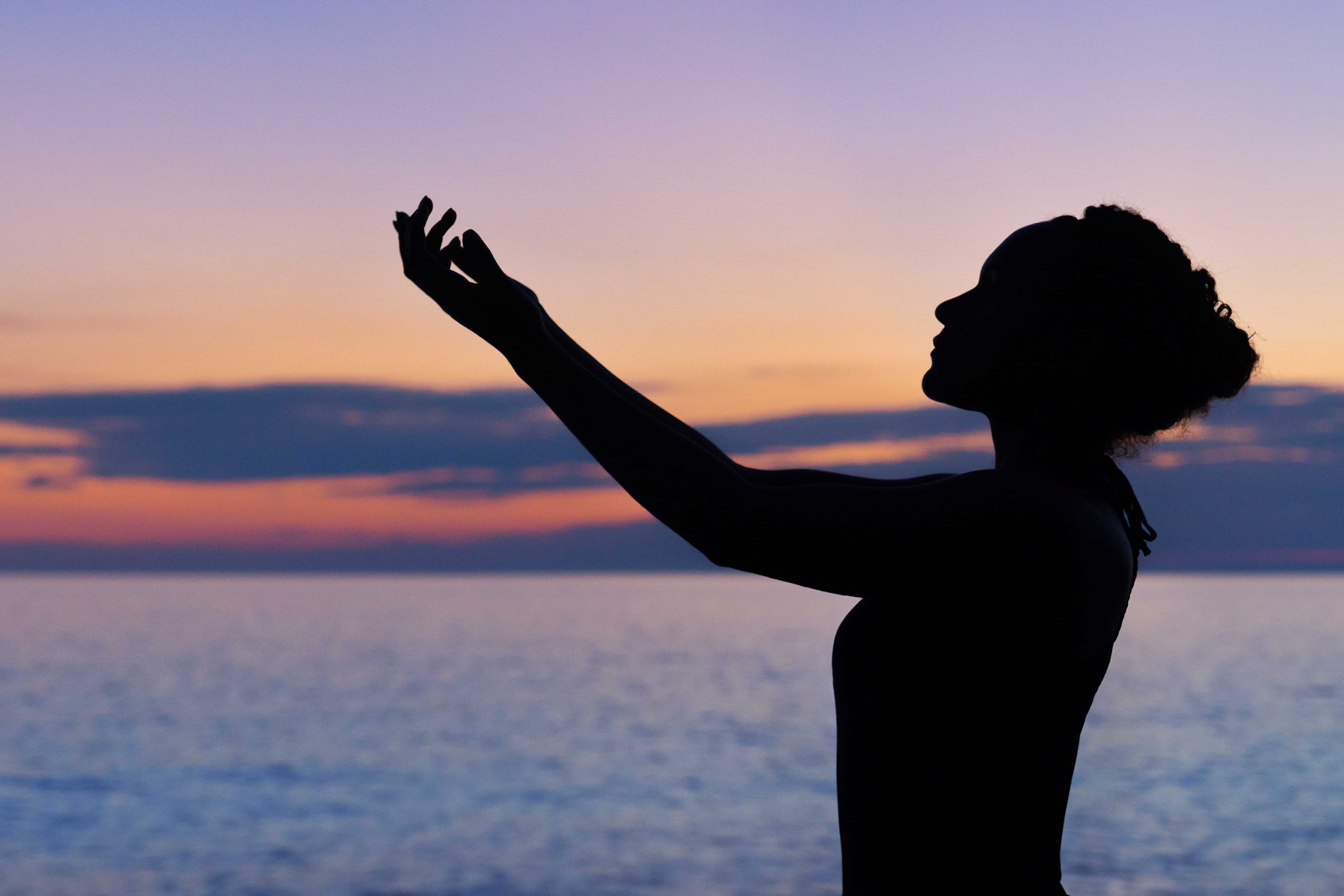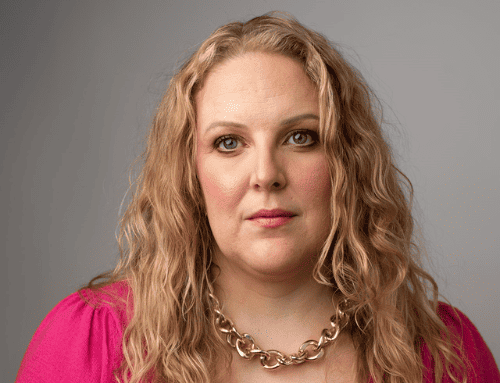Trigger warning: Sexual violence
In 2016, author and activist Marlee Liss was raped one week after returning from a women-centered meditation centre.
Feeling isolated in her trauma, she channeled her energy towards a writing project that blossomed into Re-Humanize – a book of poems and discussion questions about violence, depression, and healing that the Foundation wrote about on its blog in 2018.
After releasing her book, Marlee followed up with us to discuss her healing journey and her process to seek justice.
[Editor’s note: It’s important to note that every survivor’s journey to healing is different, and healing is not necessarily linear. Healing looks all different ways for all different people. It may or may not include speaking out online; it may or may not include seeking justice through the court system. Some may look for alternative ways of healing, like restorative justice options, or therapeutic support. No matter what option(s) survivors pursue, we support them in accessing what they need in order to heal.
It’s also important to note that survivors don’t owe anyone their story: Even though the #MeToo movement has helped many come forward, there are many more who have not been able to. Some marginalized women and nonbinary folks may feel unable to come forward for various reasons like fear of losing their job, jeopardizing their immigration status, or being stigmatized). Disclosing can also be extremely retraumatizing.
That said, when bringing visibility to something that would otherwise remain a secret – like Marlee has – it sends a wider message: Perpetrators will be held to account, and women will no longer be silenced.]
Here’s our conversation with Marlee as she continues her journey of healing and seeking justice.
Let’s go back to the start of your judicial process. What was it like to make the choice to come forward?
When I reported, I was still in such a disassociated state of shock.
It was definitely a choice to report it, but it was also such a blurry moment in time for me, and I feel like that’s true for so many survivors.
I experienced rape, and I went home just long enough to tell my roommate. We went to the hospital, and they asked “Would you like us to bring a police person in to report it?” and I was like, “Yeah, sure.”
I wasn’t really seeing or understanding the whole process, but I also didn’t want to drop it and have nothing happen. I wasn’t thinking “I want this person in prison.”
Would you feel comfortable walking us through how your process for justice began, in case it may be helpful to other survivors looking to take a similar route?
I had my preliminary trial in the winter of 2018, and it was so hard. Even the prep was difficult. You have to watch your recorded police tape statement, and seeing myself again in that moment was tough.
A week before the preliminary trial, I got free legal counsel from the Barbra Schlifer Commemorative Clinic. They asked to run through some questions for practice, and I just froze. I had been so open in my book, and I felt like I’ve done a lot of healing. But something about this process made me lose my voice and made me question if I could handle being on the stand. I was afraid I would throw up or freeze again.
When the trial happened, I was on the stand for something like 5 hours. My assailant just sat there; he didn’t have to say anything. He was just looking at the floor the whole time. And this person is a stranger to me too, so this is only the second time I’ve seen him in my life. That alone was really jarring.
The questions they asked were very invasive. They asked things you would never remember, like “How many thrusts per minute?” or “Wait a second, you said you were on your back, how could he possibly touch you the way you described if you were on your back?”
I was lucky to have had an amazing crown attorney. On the morning of my preliminary trial, she came to me crying and said, “I just read your book Re-Humanize.” Until then I had figured those working in the judicial system were just, like, excessively formal robots. I never really thought they were here for my well-being. But she said to me, “Honestly, I took this job because it’s so important to me that survivors’ voices are heard, and that you have the chance to speak your story and be heard. I always want this to be an empowering experience, but it’s also always retraumatizing.” That reminded me that people go into this process for a reason. I saw the crown attorney as another human with empathy and solidarity. Her work might also involve retraumatizing survivors when all she’s trying to do is advocate for them.
There was also an aspect of being on the stand that was really empowering for me, mostly because I didn’t think I would be capable of it.
Have you pursued any other healing options outside of the courts?
My life is centered around self-love, spirituality, and healing. And so you can imagine how one of the most devastating and confusing things for me to get my head around was that a rapist is a human. I was thinking society teaches us that a rapist is a psychopathic monster with no empathy. I just couldn’t understand it, because we both experience sadness, guilt, and shame, but he can do that to another human? I even felt like I could see his own emotional process – almost like he was thinking “holy shit – this is another person” – as he was assaulting me. In therapy, that’s what I focus on the most, because having empathy for him was something I really struggled with.
I didn’t think about the legal process so much while I waited for my subpoena. I was almost denying that a court date would ever come. During this time, I had a vision of sitting together in a healing circle and humanizing one another. I wanted to ask him, “Hey, what the hell did you experience in your life that created so much wounding in you that you could turn around and do what you did?”’ I shared this vision with very few people because it didn’t seem like a commonly-held stance or approach. I feared I might get condescending responses, or people trying to tell me I have Stockholm Syndrome. I told a friend that this is what I wanted to do, and she said I should try to make it happen. I posted on Instagram that I wanted to know more about restorative justice – someone I don’t even know recommended The Forgiveness Project. I got connected with someone there. Through the Forgiveness Project, I was connected with my current lawyer, Jeff Carolin. We talked about my vision, and that’s brought me to where I am now with pursuing restorative justice, which has its roots in Indigenous culture.
Restorative justice can be looked at in different ways in different communities and can have different names and components – like a “sentencing circle” or a “healing circle.” It can include therapy, actions to propel growth and transformation, and other innovative approaches to justice. Essentially, it’s about moving through a process which involves gaining empathy for one another, seeing where people came from, apologizing, and working towards forgiveness. It’s more rehabilitation-focused than punitive.
Do you know yet what this restorative justice process will look like?
First, my rapist must participate in ongoing therapy. They recommend he does that therapy first, which I agree with, as therapy is already meaningful to me. And then once they feel that he’s open enough and that the process will be successful, whatever that means, and when I feel emotionally and mentally ready, we will gather in a mediation circle.
My lawyers and his lawyers will be there, and people from our community will attend too, including my mom and sister, as they were also significantly impacted by this trauma. Its inclusive nature is meant to provide accountability and help propel us toward whatever reconciliation or healing that we, as humans, can find. I’ve been wondering if his mom and my mom will both sit in that circle. There would be something so powerful about that to me.
I am interested in getting to the root of why sexual assault happens and where it comes from – I want to talk about what patriarchal wounds are driving sexual violence.
On so many levels, this feels like healing to me – both personally and collectively.
Sometimes the legal system might feel like trying to talk to someone through three or four layers of people – almost like it’s there to remove you from confrontation and healing. Getting a chance to sit down and ask questions makes sense.
That’s how I feel as well.
I also think about how many survivors don’t report because they don’t want to go through the whole criminal justice process but that doesn’t mean that they don’t want justice on some level. To me, it’s like there needs to be this third option. Without this third option, it feels like the only other options are to put yourself through this really hard legal process in the hopes that your assailant will go to prison, or say nothing as if it never happened and go home and navigate the trauma yourself. Those feel like lose-lose options to me.
Navigating something as traumatic as sexual assault can be fraught with roadblocks, especially as it often involves multiple systems (healthcare, police, courts). What did you find as you navigated those systems?
I felt like there were a lot of kind people apologizing for their protocol – almost like “I’m so sorry, I know this sucks. Now let’s do it.”
For example, the person who processed my rape kit was amazing, and I think of that nurse often. She cried with me. Someone might say that was unprofessional, but it was meaningful and real. To me, that was part of healing. But at the same time, when I initially went to the hospital, I was told a rape kit couldn’t be done for 24 hours. I was instructed to go home and come back, but I wasn’t allowed to shower or change clothes. It’s like, they know this process is messed up, but people have just accepted it or have refrained from questioning it – that’s just the way it is.
That’s when I started thinking hey, since we all know and feel the weight of how much this sucks, let’s start talking about fixing broken processes. Let’s start talking about more innovative and more healing ways to deal with this.
Do you have thoughts on what this will mean for other survivors who want to pursue this process?
There are so many varying perspectives about how to heal, and I do celebrate those. At the same time, I really hope the restorative justice option will become normalized. I want it to be presented as a standard option when you’re at the hospital, when you’re talking to police, and when you’re talking to a lawyer.
The important thing is that options are survivor-centered. We have to ask what survivors want. There have been restorative justice processes done where the survivor doesn’t need to be present at the mediation circle if they are not comfortable with that level of participation. There’s so much space within restorative justice to center the needs of the survivor. More restorative justice programs are definitely needed.
The reality is that rape is not necessarily a random act that came out of nowhere from one bad seed. Objectification is so normalized in our culture, and these are messages that all people, all perpetrators, have received. Whatever life they’ve lived, whatever trauma they have from the culture we live in, which asks men and everyone to suppress emotion – all of this warrants a closer look.
It’s important to “zoom in” on compassion and forgiveness, but also to recognize that this is not the same thing as justification. Restorative justice is not about justifying one’s actions. It’s about accountability, closure, rehabilitation, and often times forgiveness, as well as how to go forward. Because of the scale of sex crimes, we need to get really serious about discussing the options for what comes next.
What do you think success (or closure, or whatever name you’d give to it) will look like for you at the end of this restorative justice process?
Having the chance to take this path has already really restored something in me that I felt was lost through trauma.
I also really wanted to advocate for change and societal progress, and I was able to do that. So it’s been deeply empowering already in that way.
For me, it’s enough – and it’s actually deeply meaningful – that he has to go to therapy. In a way, I feel like that’s all I ever wanted. I wanted him to do deep reflection. I wanted some level of openness for him to feel how painful this was for me. I feel like if he has enough openness to connect with what I went through and what I felt, then that would change so much within him. I wanted real rehabilitation for him, and this option felt like it could start that process.
Ultimately my dream would be that he so deeply felt the pain he caused that he would be inspired to work with other men and youth preventatively so that they don’t follow the same path. I do care about men’s healing and recognizing how that’s not always separate from women’s healing. Men need to be doing their own therapy and self-care and deconstructing to strip away patriarchal messages they’ve been given. The hope is that, if that work is done, men won’t be capable of hurting women in such a way. They won’t be capable of contributing to the cycle of oppression. That became so clear to me through this.
Your healing is not separate from my healing.
Marlee had her restorative justice circle in the fall of 2019 and found deep healing and closure through the process, beyond her expectations. She feels like this was an important step in her own healing and is assured that her assailant will not commit these crimes again. She was able to ask the questions she needed answers to, to be heard in her hurt, and to call for transformation on her assailant’s part.
Marlee is currently in the process of launching a charity called Re-Humanize focused on the intersection of sexual violence and restorative justice, as well as gender reconciliation. She is committed to making justice and healing synonymous and ensuring that survivors’ needs are centered within the legal system and in mainstream conversation. You can learn more about the Re-Humanize Movement and support the Re-Humanize Foundation’s launch.
Her book Re-Humanize is available for purchase on Amazon, in Caversham Booksellers, and in select Chapters/Indigo (and can be officially ordered into any location).
The Barbra Schlifer Commemorative Clinic is a current Canadian Women’s Foundation grantee.
Take Action
- Donate to AFTERMETOO
Learn More
- Q&A: Healing and Re-Humanizing After Trauma with Author and Activist Marlee Liss
- The #MeToo Movement Hasn’t led to a Better Understanding of Consent
- What Youth Have Taught Me About Teaching Consent: Kevin Vowles







